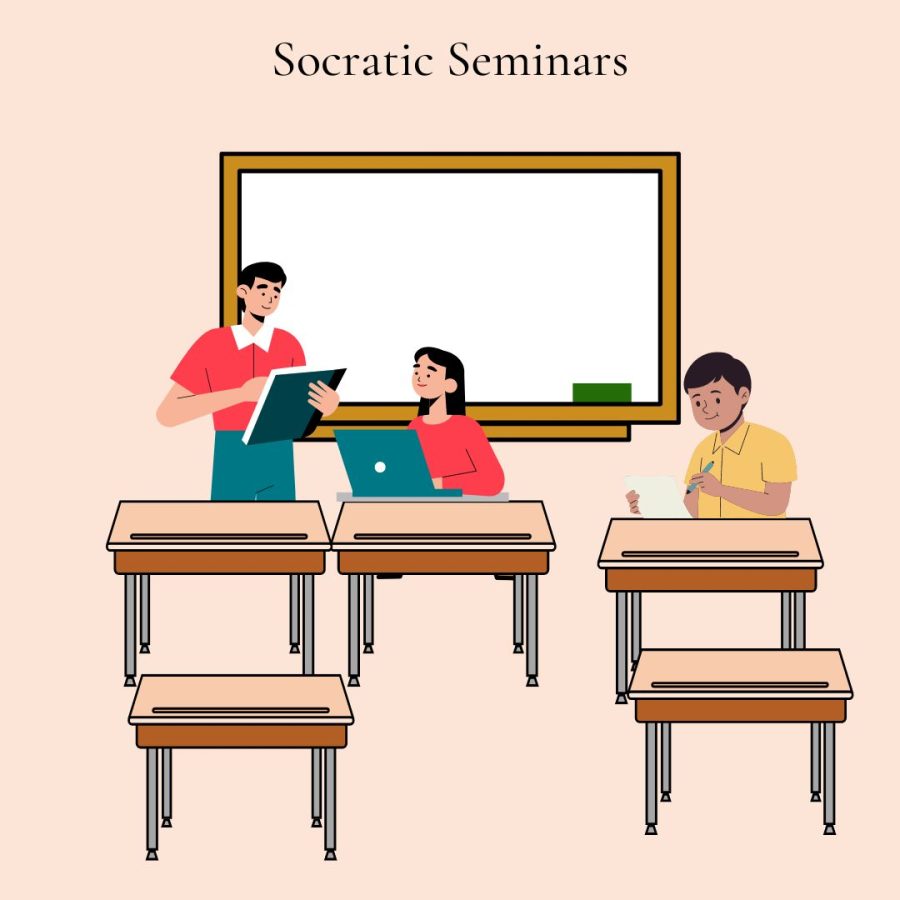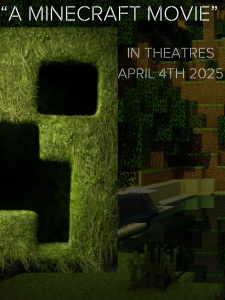Opinion: Get rid of socratic seminars
Socratic seminars are regularly used in VHS English classes for all grade levels, but the method is seemingly outdated. Graphic by: Kendall Garcia
May 2, 2023
Socratic seminars in classrooms can be anxiety provoking for students and are negatively affecting the classroom environment
Socratic seminars are a method used to try to understand information by creating a dialectic class in regard to a specific text. However, they do not belong in a high school classroom environment. Many English, science and history teachers on the VHS campus use socratic seminars to grade students on their knowledge of a topic.
Claire Clay ‘23 said, “I’ve participated in a couple socratic seminars but I don’t think the method is better than just doing quizzes and stuff. They seem kind of outdated.”
A socratic seminar is a student-led conversation based on texts that are appropriate for the class being taken. Students may have socratic seminars on books, articles, essays, videos or movies.
There are many problems with using socratic seminars in the classroom. The biggest problem I see with this method would have to be that socratic seminars can often be anxiety provoking for students. The grading scale of most socratic seminars is also a big issue. The majority of socratic seminars are graded based on how much a student talks during the discussion and what ideas they bring to the table. But is this really fair to the students? I say that in a perfect world, all students would be comfortable enough to speak up in discussions, but in reality that simply isn’t the case. Just because a student doesn’t talk during a seminar does not mean that they didn’t do the same amount of work a student who speaks a lot during a seminar does. It’s not fair to grade a student based on how much they did or didn’t speak in front of their classmates.
Greg Raney, an English teacher, said, “I assess [students’] preparation for the discussion [when grading]. Are they prepared with notes? Are they ready to discuss or have they done their reading? I also evaluate whether they know basic factual information about something, and at the same time if they are able to use that information to formulate their own opinions and ideas and interpretations. I also evaluate how often they refer to the text, you have to cite evidence and point to certain things, which takes patience. I kind of evaluate how well they listen and how well they actually build off of each other, and use each other’s ideas to reach a deeper understanding.”
Another flaw in the grading scale is grading students on how much they talk but not really what they say. Some students can speak a lot during a seminar but bring no new ideas to the table, while others only speak a little but have the most intellectual ideas.

Raney said, “I think getting students talking and discussing over any text, or just having a discussion as a class is a great strategy and routine. I think discussing anything is challenging, especially after distanced learning and COVID-19 and with the amount of time we spend on screens, I think having a face-to-face conversation is essential and powerful. It’s one of the learning goals for my class, it’s also a state standard, to practice listening and speaking. So, I think it’s an essential skill to have for life and for college.”
Why is a socratic seminar better than methods such as regular classroom discussion, quizzes, essays or tests? Some may say that a socratic seminar is better because it enforces classroom engagement, or maybe even that it offers a greater understanding of the topic at hand. But so do other methods. Regular ungraded classroom discussions often give the students who want to learn a greater understanding of topics with much less pressure and the freedom to ask questions without judgment. If, as a teacher, you are still looking for something to grade, you can have students respond on their own to a certain topic or question on paper or canvas. This way, students will not be put on the spot to explain or defend their opinions in front of the class.







![Lindsay Guzik, new assistant principal said, "I am settling in [at VHS] pretty well. I know a lot of the students, so that makes it a little bit easier coming from Cabrillo, and it's been nice to see them all grown up." Photo by: Abraham Kassa](https://thecougarpress.org/wp-content/uploads/2025/09/IMG_9728-300x200.jpg)
